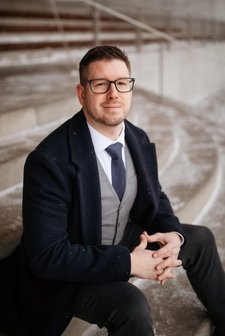
Jann E. Freed, Contributor
July 23, 2024
“While having enough money to be comfortable – a different standard for everyone – remains important, it’s not the only, or even most important, focus for many.” This was one conclusion in a seminal 2009 research study, “Discovering What Matters,” by MetLife Mature Market Institute. According to Sandra Timmermann, then-director of the study, “The most content people also focus on the non-financial essentials in their lives, even during difficult economic times.”
Money matters, of course. It is critical to financially plan for your needs and wants for the rest of your life. Regardless of financial status, respondents claimed their goals were primarily meaning-based. Findings indicated older respondents focused less on wealth accumulation and more on health and well-being as compared to younger respondents.

Purpose
Jann Freed
Richard Leider, author of several books including The Power of Purpose: Find Meaning, Live Longer, Better, was involved in this study . Leider stressed that “Discovering What Matters ” indicated living the “good life” for middle-aged and older Americans is correlated with having a sense of meaning and purpose in their lives. Based on interviews with more than 1,000 Americans ages 45 to 74, the good life is defined in the report as “meaning is more important than money and significance is more important than success.”
Once the financial situation is in place, many people are concerned by everything else. Fear of what’s next can take an emotional toll on those who are not prepared. Questions emerge such as:
· What am I going to do with my time?
· How am I going to connect with people?
· How can I use my skills and talents?
· If I am what I do and I don’t do it anymore, then who am I?
Planning effectively for the rest of life is about planning for beyond the money, — the nonfinancial aspect of retirement. This involves the emotional, spiritual, and psychological aspect of leaving one’s main career and identity.
Navigating the Transition
For instance, I once coached a prominent lawyer who had just received a health diagnosis that was going to inhibit his ability to practice law on a full-time basis. I asked him, “How do you want to contribute your skills and knowledge in a new way?”
As I made various suggestions, I could tell he was getting irritated. He asserted that he’d worked long enough, saying “I don’t want to do anything.”
Realizing that he’d misunderstood my intent (he had confused work with purpose and contribution), I asked, “What is going to get you out of bed in the morning?”
That question changed his mindset. Understandably, he had been fearful about this big change in his life. When we shifted to talk about his purpose each day, we were able to come up with a list of options that reduced his fear and improved his attitude.
When people are prepared for the transition from work to the next phase of life, they are less likely to retire while on the job. This is also called quiet quitting where employees are still working, but not growing or thriving. They are just putting in their time and going through the motions.
The Everything Else
I once worked with an insurance company that decided to offer an exceptionally generous early retirement package. The CEO was shocked when only five of the 80 eligible employees signed up.
“When people have enough money to support their lifestyle,” I explained, “money is not a motivator.” The eligible employees had enough money. But the everything else factor was terrifying to them.
When people have a plan, they know where they are going, and have ideas on how to spend their time. Their life without a job becomes something real, rather than an abstract and scary concept. They are more able to let go in order to move on. Sure enough, the insurance company saw more employees sign up for early retirement once more focus was directed toward nonfinancial planning for the future.
Based on my coaching experience, many people struggle with questions of what to do in the next phase of life. Many people describe how they will figure it out once they get there. It takes time and intentional thought to prepare for life after retirement. What will you do with your time? How will you connect with people? How will you use your skills and talents? Now is the time to contemplate these questions so you are ready to let go in order to move onto what’s next for you.
© 2024 Forbes Media LLC. All Rights Reserved
This Forbes article was legally licensed through AdvisorStream.


